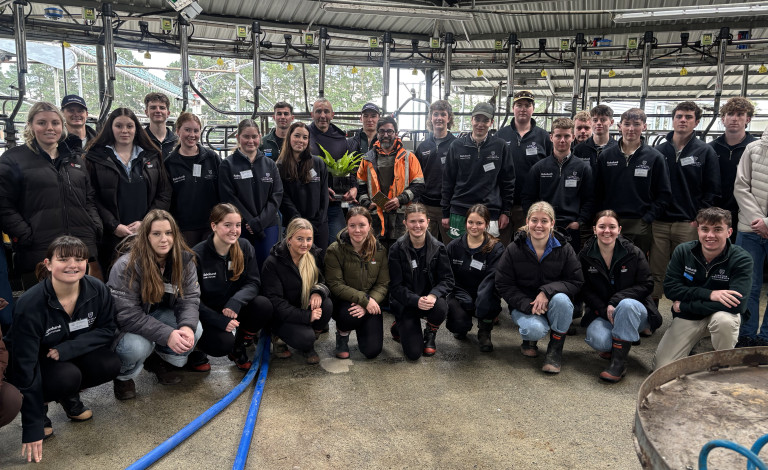Paving the way: Sir Hēnare Ngata and the future of young Māori leaders
17 June 2025 | News
The significant career of Aotearoa New Zealand’s first Māori accountant, Sir Hēnare Ngata, has been documented in recent research, revealing his profound contribution to Māori. With indigenous representation in the accounting profession still low today, while Māori contributions to New Zealand’s economy will far surpass $100 billion by 2030¹, Sir Hēnare’s career provides an aspiration for young Māori today.
Te Whare Wānaka o Aoraki Lincoln University Senior Lecturer Dr Mohini Vidwans, the late Associate Professor Rosalind Whiting from Otago University and Associate Professor Carolyn Fowler from Te Henare Waka Victoria University of Wellington co-authored the research titled, Sir Hēnare Ngata: An Indigenous accountant empowering his Māori community in the mid-twentieth century, published in Accounting History.
“I am deeply interested in indigenous empowerment and felt it was important to share Sir Hēnare’s life story, encompassing not just his contribution to the accounting profession and Māori but also shedding light on him as a husband, father and grandfather,” says Dr Vidwans.
Through archival records, kanohi ki te kanohi (face-to-face) kōrero (conversations) and attending hui (meetings), Dr Vidwans connected with Sir Hēnare’s whānau, clients and former work colleagues, embracing the Māori principle of whanaungatanga to build relationships. With some of those interviewed now in their 80s, Dr Vidwans believed it was vital to capture their stories, particularly as Sir Hēnare passed away in 2011.
“I travelled to Gisborne for kanohi ki te kanohi kōrero with whānau who were incredibly welcoming and supportive of us completing this research,” says Dr Vidwans. “Through these conversations and sharing of kai, I was able to build trust and a rapport.”
Dr Vidwans shares that she was fortunate to visit the bungalow where Sir Hēnare grew up in Waiomatatini, north of Gisborne. He was the youngest in his family, and from a young age, Sir Hēnare was encouraged to use his leadership skills by his parents, Sir Apirana Ngata and Lady Arihia Ngata.
Upon returning to New Zealand, having served in the Second World War, Sir Hēnare completed his studies at Victoria University of Wellington. From there, he and his wife Lady Lorna returned to Gisborne, where after working for an accountancy firm, he began work as the first independent Māori public accountant at his practice, H K Ngata Public Accountant. Sir Hēnare’s clients were mostly Māori incorporations, trusts and individual farmers from the North Island’s East Coast.
“The darker side of colonisation in New Zealand was the marginalisation and oppression of Māori. This is why Sir Hēnare’s work is so significant. He combined his knowledge of Māori customs and beliefs with Anglocentric accounting practices to support and empower Māori to self-govern and develop their lands.”
One example of Sir Hēnare’s unique ability to bridge the gap between two cultures was during his time as Chair of Mangatu Blocks Incorporation from 1959 until 1987. Sir Hēnare is credited with bringing stability and credibility to the organisation while also encouraging Māori working on the farms to increase their skills. He was instrumental in bringing Mangatu Block’s case to the Waitangi Tribunal after they were forced to sell land in 1961 to the government for forestry without fair compensation. Years after Sir Hēnare’s passing, Mangatu Block won the case in the High Court.
Dr Vidwans shares that Sir Hēnare’s contribution to Māori in Gisborne is an example to indigenous accountants of today and young Māori considering accountancy as a career path.
“Even today, Sir Hēnare’s bicultural approach gives us insights into how to break down cultural barriers, and this is particularly pertinent as businesses now report using financial, environmental and social measures. For Māori, land is whenua with the concept of stewardship as opposed to ownership. Sir Hēnare helped empower Māori to self-govern in a world dominated by Anglocentric laws and practices. This is important work today too; I hope Sir Hēnare’s story encourages young indigenous people to consider accounting as a fulfilling career, as Māori are still hugely underrepresented in the profession,” says Dr Vidwans.
The lasting impact of Sir Hēnare’s legacy, in the eyes of Dr Vidwans, is his decision to go back to Gisborne to practice accounting so he could contribute to Māori wellbeing and economic development in his home region.
“Sir Hēnare could have stayed in Wellington when he became an accountant, but rather he chose to return to Gisborne and his birthplace to start his own accountancy business. I believe his goal was to help Māori understand accounting by explaining it in ways they easily understood. He also placed a greater focus on entities improving the lives and wellbeing of Māori, not just making financial progress."
For media enquiries, please contact media@lincoln.ac.nz
Caption: From left, Sir Hēnare Ngata's great-granddaughter Venus Taare is with Dr Mohini Vidwans.
Reference:
1. Radio New Zealand. (2025, March 11). New report highlights dramatic growth in Māori economy. https://www.rnz.co.nz/news/te-manu-korihi/544464/new-report-highlights-dramatic-growth-in-maori-economy


